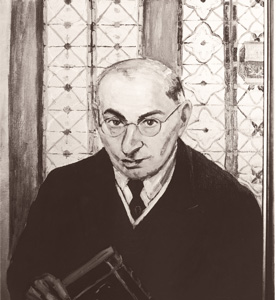Cornell’s ‘almost’ presidents
In Cornell history there are incumbent presidents, former presidents, and “almost” presidents, namely those who declined or postponed acceptance when offered the position.
In anticipation of the institution’s transition in 1857 from a seminary to Cornell College, the trustees offered the presidency to Samuel Fellows, the principal of the seminary since its inception in 1853 and an effective preacher. Fellows declined, reputedly because, as a self-educated man lacking a bachelor’s degree, he believed the college deserved a president with more impressive credentials.
The trustees then chose Edmund Erastus Eastman Bragdon, a graduate of Wesleyan University and at the time professor of Latin in Indiana Asbury University (now DePauw). Besides his alliterative name, he was remarkable for “his inseparable spectacles and his thoughtful face, grave almost to severity.” As a preacher he was known for the “resistless logic of his discourse, often rising to impassioned eloquence.” After the 1857 catalogue listing him as president was at press, he and the college disagreed over his salary and he withdrew. The next candidate, the Rev. Richard Keeler of Davenport, accepted, but two years later resigned. Fellows then agreed to become Cornell’s second president.
When Fellows died in 1863, the trustees offered the presidency to David Wheeler, the school’s first professor of classical languages, who was then serving as U.S. consul in Genoa. William Fletcher King, hired the previous year to teach Classics, was appointed vice president for the duration of the protracted transatlantic negotiations. When Wheeler’s refusal arrived from Italy, the trustees, rather than begin a new search, promoted King.
When fourth president and alumnus James Harlan retired in 1914, the position was offered to his alumnus nephew, Harlan Updegraff. He declined, stating that he did not wish to be responsible for raising money; however, in 1923, he changed his mind and became the college’s sixth president.

Following Updegraff’s refusal, the trustees chose Thomas Nicholson, general corresponding secretary for the board of education of the Methodist Church, who had been principal of the Cornell Academy and professor of religion. The local newspaper announced his presidency on June 23, 1914, but retracted the story on June 30 because Nicholson was unable to secure his release from the Church.
The last known “almost” president was alumnus Edward Thomas Devine, Class of 1887, who held a Ph.D. from the University of Pennsylvania and was a professor of social economy at Columbia University. He was a very distinguished social scientist and is believed to have coined the term “case work.” In 1914, he was chairman of the trustee presidential selection committee. When its yearlong search failed to find an acceptable candidate, the trustees offered the presidency to him. He refused.
One can only wonder what the history of the college would have been if any of these men had become president. King Chapel might now be Devine Chapel.
